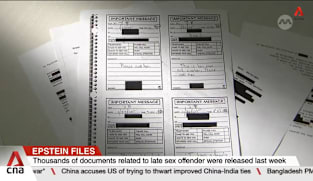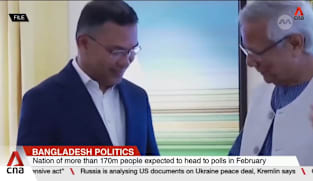Chan Chun Sing on motion calling for abolition of Group Representation Constituencies
To support a motion calling for Group Representation Constituencies (GRCs) to be abolished goes against Singapore’s founding philosophy of ensuring that the interests of minority communities are accounted for. It risks having no or inadequate multiracial representation in the highest legislative body of the land. It leaves to chance the emergence of racial politics and forgoes Singapore’s progress towards a system where race is not a determining factor in electoral contests. Education Minister and Minister-in-charge of the Public Service Chan Chun Sing said this in Parliament on Wednesday (Jul 5) as he outlined why the PAP would vote against the motion brought by the Progress Singapore Party (PSP). Mr Chan said the claim that the GRC system unfairly benefits the incumbent by tapping on the “star power” in each team is false, as “star power is not the preserve of the incumbent”. He said the converse is also true - should a member of the team, minister or otherwise, become a liability, he or she can affect the electoral performance of the entire team. On GRC size and the number of Single Member Constituencies (SMCs), Mr Chan said the average size of GRCs has come down and the number of SMCs has gone up in the past two elections. He also addressed Mr Leong Mun Wai’s suggestion that GRCs are “rather homogeneous” in character. Mr Chan said constituencies being microcosms of the country allows voters to focus on selecting candidates to represent them based on the collective national interest rather than sectoral characteristics or interests. The minister also challenged the proposals made by the PSP to replace the GRC system. Specifically, on the NCMP scheme for minorities, he pointed out that the NCMP system comes into play when the ruling party has a large majority in Parliament. So it is likely that it will kick in when the ruling party has a large majority without minority MPs or very few of them. If so, the proposed system will bring in the best-performing losing minority candidates. This would lead to a predominantly Chinese party in power with minority NCMPs in opposition. The political divide would be along racial lines, which would be “most dangerous”, he said. Concluding, Mr Chan said Singapore - as a young nation with unique circumstances and needs - must find its own way of governance and not “blindly copy” other systems, especially when those systems face their own struggles. He said Singapore must find the least imperfect system and it “does not need to be shy” to say that its system has largely delivered satisfactory outcomes for its people and country.
To support a motion calling for Group Representation Constituencies (GRCs) to be abolished goes against Singapore’s founding philosophy of ensuring that the interests of minority communities are accounted for. It risks having no or inadequate multiracial representation in the highest legislative body of the land. It leaves to chance the emergence of racial politics and forgoes Singapore’s progress towards a system where race is not a determining factor in electoral contests. Education Minister and Minister-in-charge of the Public Service Chan Chun Sing said this in Parliament on Wednesday (Jul 5) as he outlined why the PAP would vote against the motion brought by the Progress Singapore Party (PSP). Mr Chan said the claim that the GRC system unfairly benefits the incumbent by tapping on the “star power” in each team is false, as “star power is not the preserve of the incumbent”. He said the converse is also true - should a member of the team, minister or otherwise, become a liability, he or she can affect the electoral performance of the entire team. On GRC size and the number of Single Member Constituencies (SMCs), Mr Chan said the average size of GRCs has come down and the number of SMCs has gone up in the past two elections. He also addressed Mr Leong Mun Wai’s suggestion that GRCs are “rather homogeneous” in character. Mr Chan said constituencies being microcosms of the country allows voters to focus on selecting candidates to represent them based on the collective national interest rather than sectoral characteristics or interests. The minister also challenged the proposals made by the PSP to replace the GRC system. Specifically, on the NCMP scheme for minorities, he pointed out that the NCMP system comes into play when the ruling party has a large majority in Parliament. So it is likely that it will kick in when the ruling party has a large majority without minority MPs or very few of them. If so, the proposed system will bring in the best-performing losing minority candidates. This would lead to a predominantly Chinese party in power with minority NCMPs in opposition. The political divide would be along racial lines, which would be “most dangerous”, he said. Concluding, Mr Chan said Singapore - as a young nation with unique circumstances and needs - must find its own way of governance and not “blindly copy” other systems, especially when those systems face their own struggles. He said Singapore must find the least imperfect system and it “does not need to be shy” to say that its system has largely delivered satisfactory outcomes for its people and country.



















